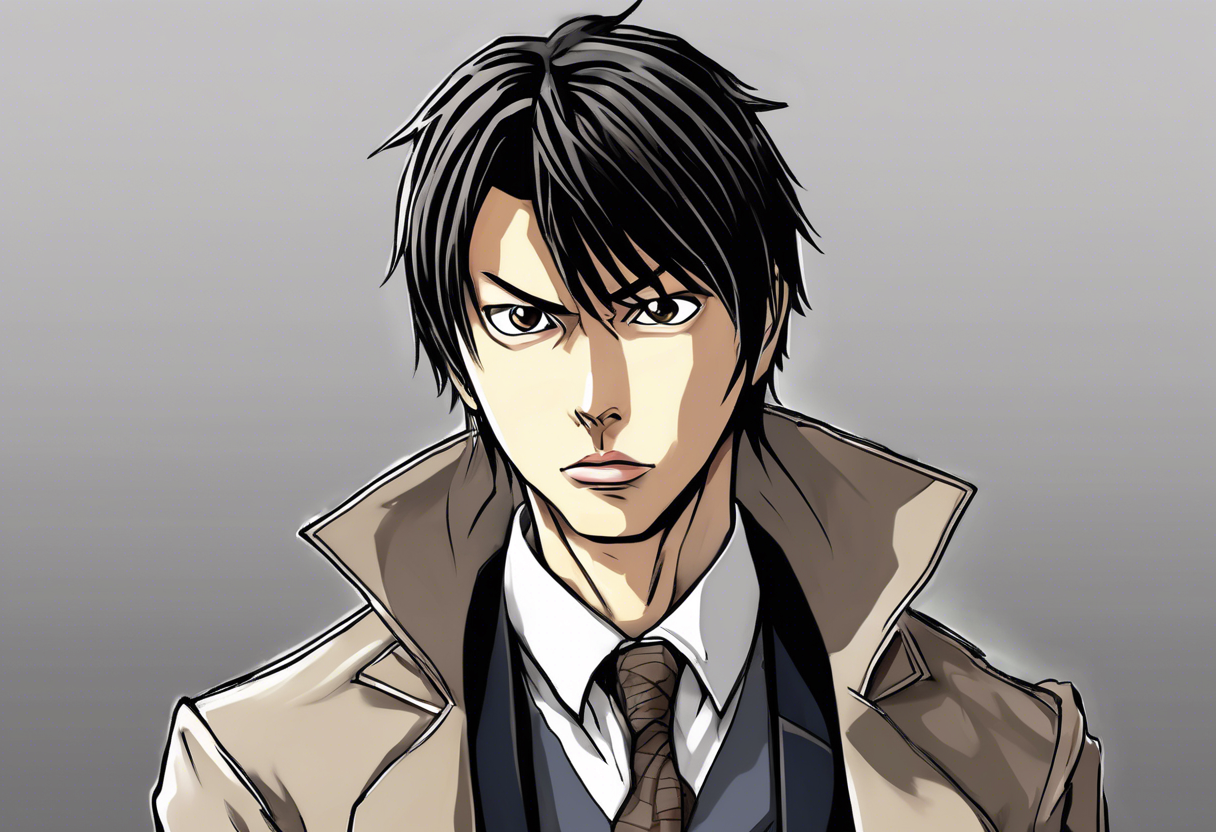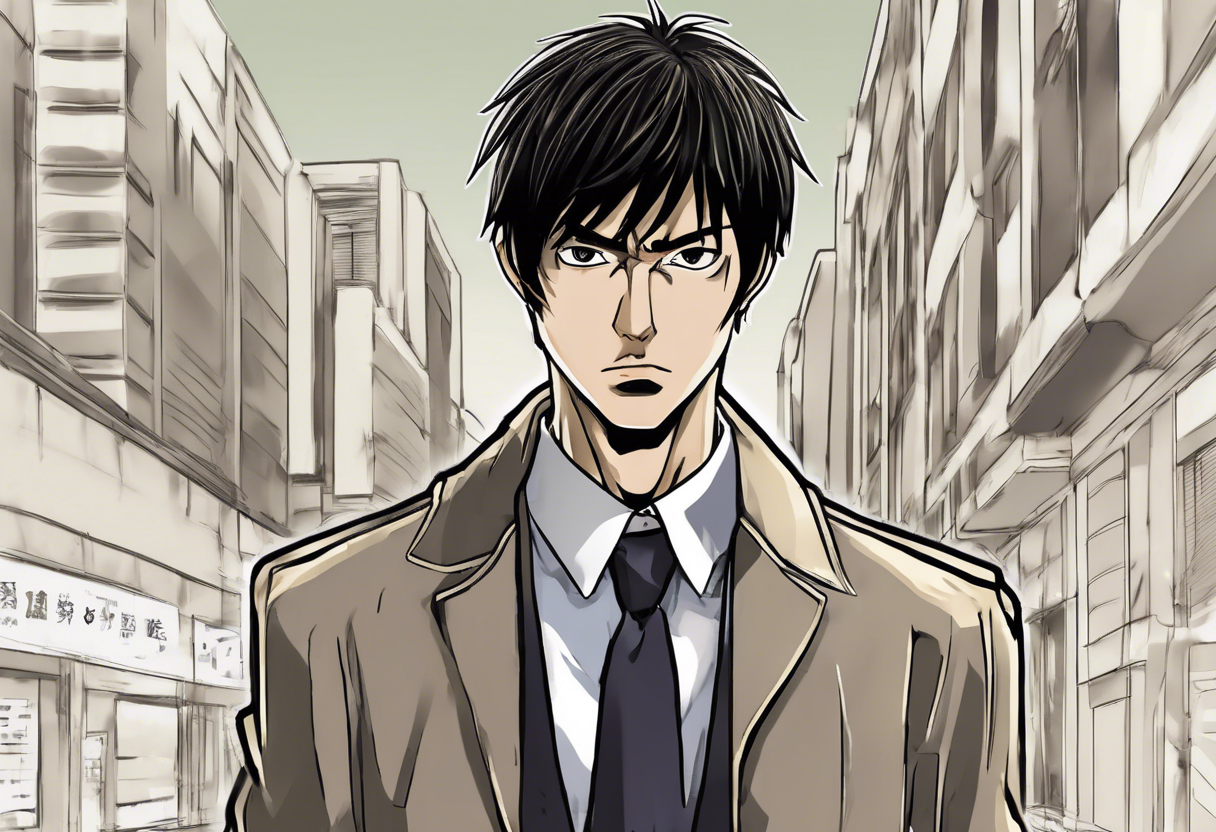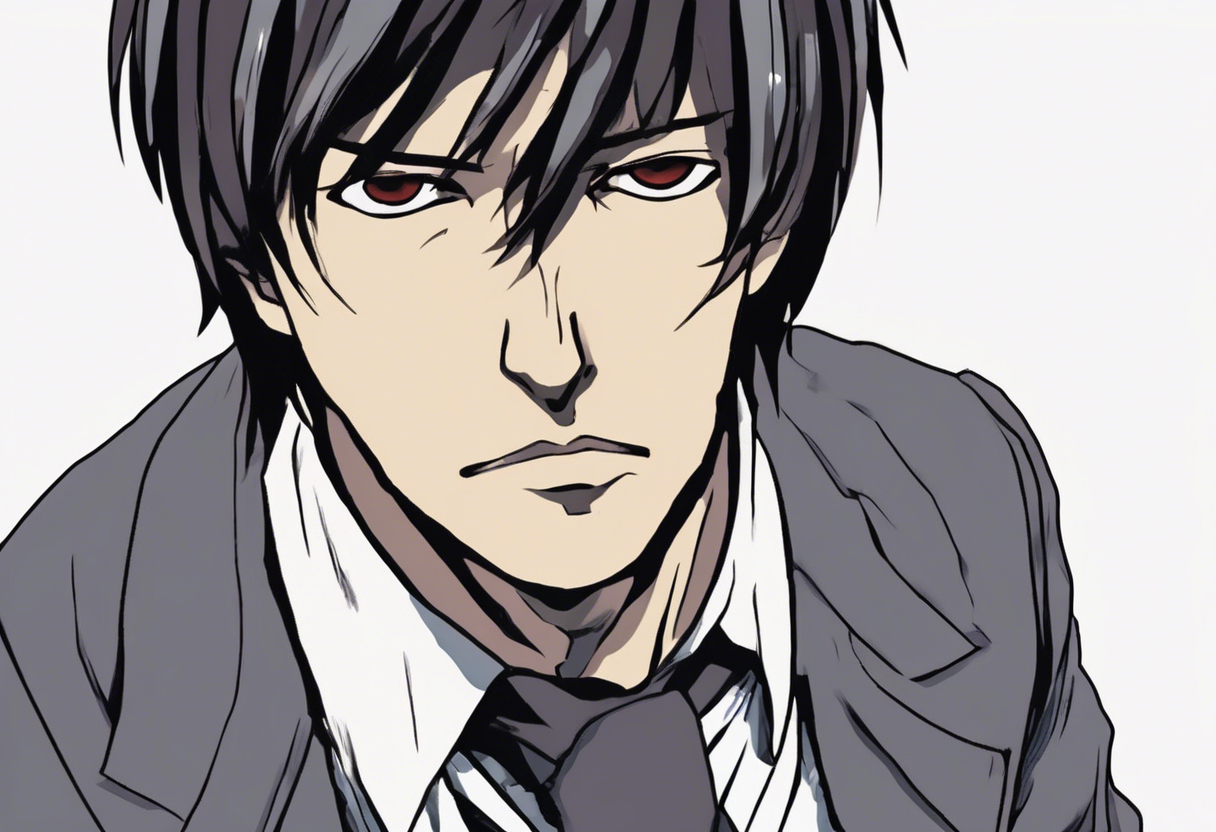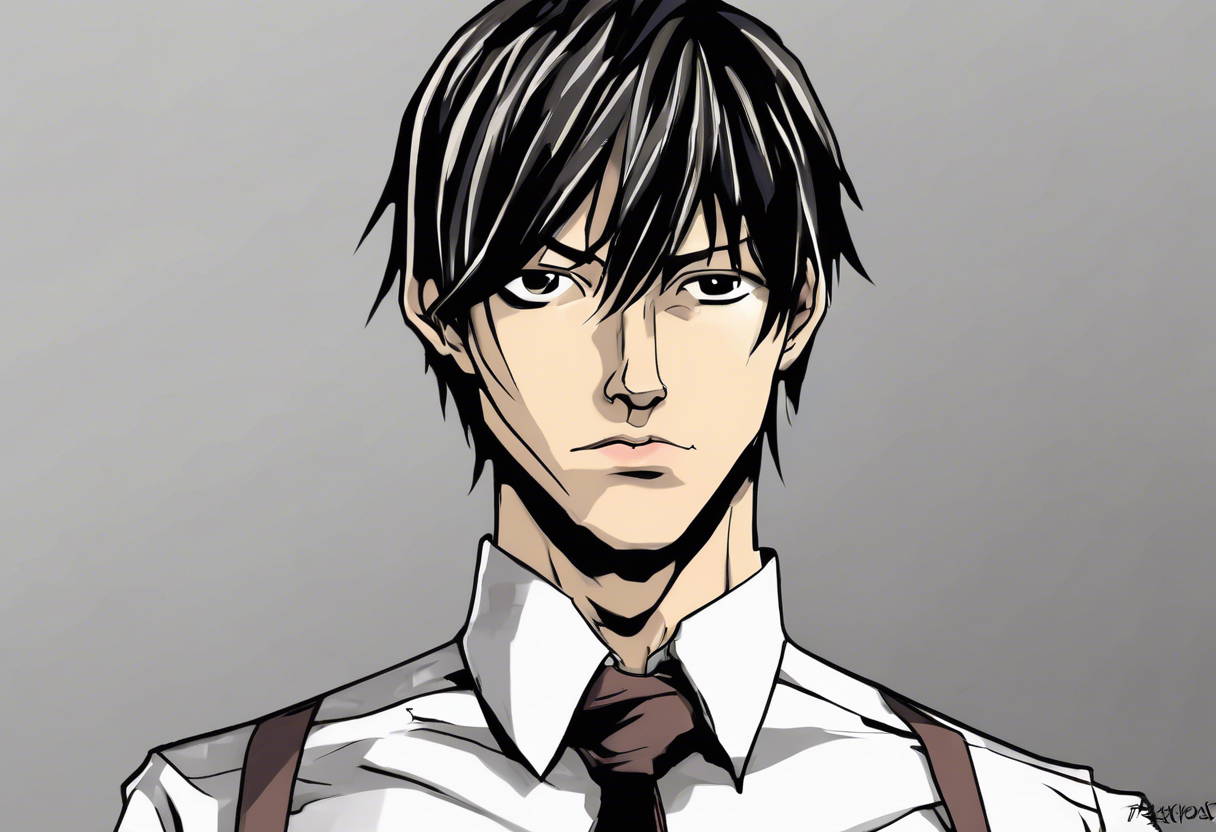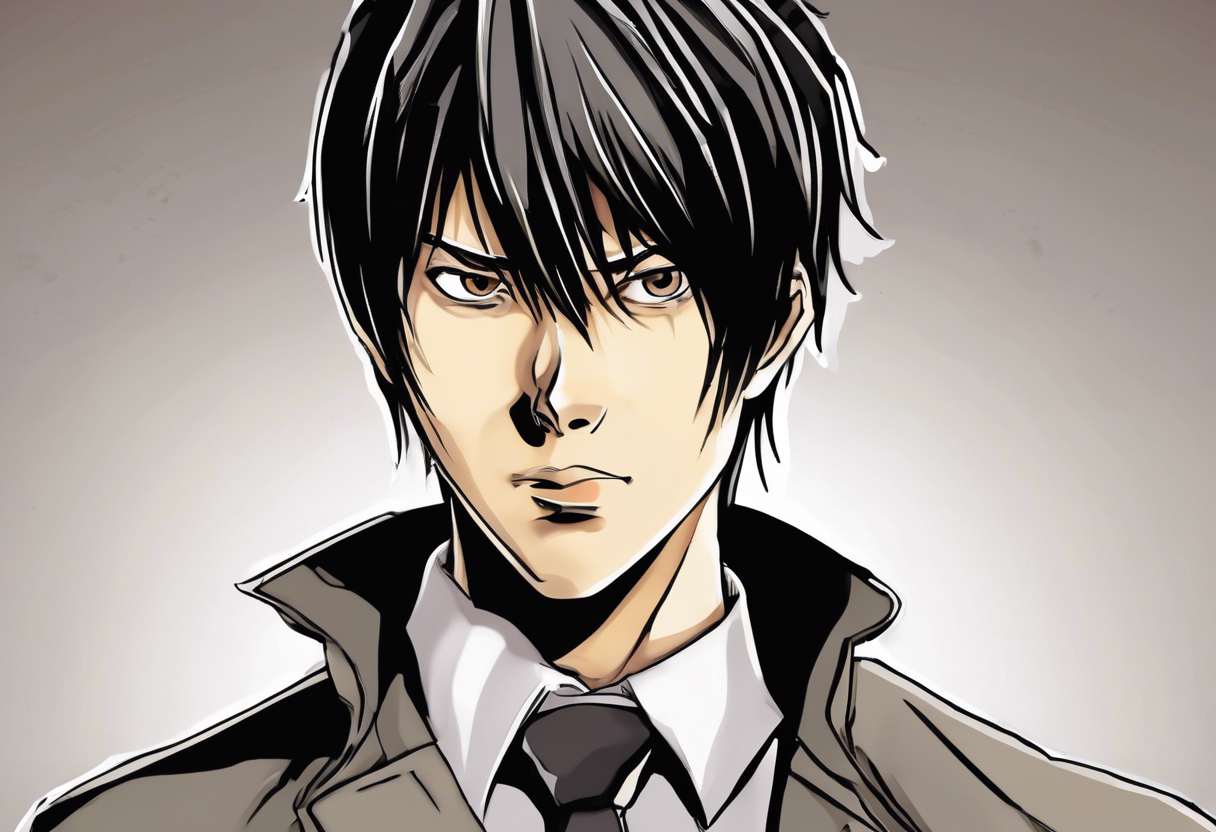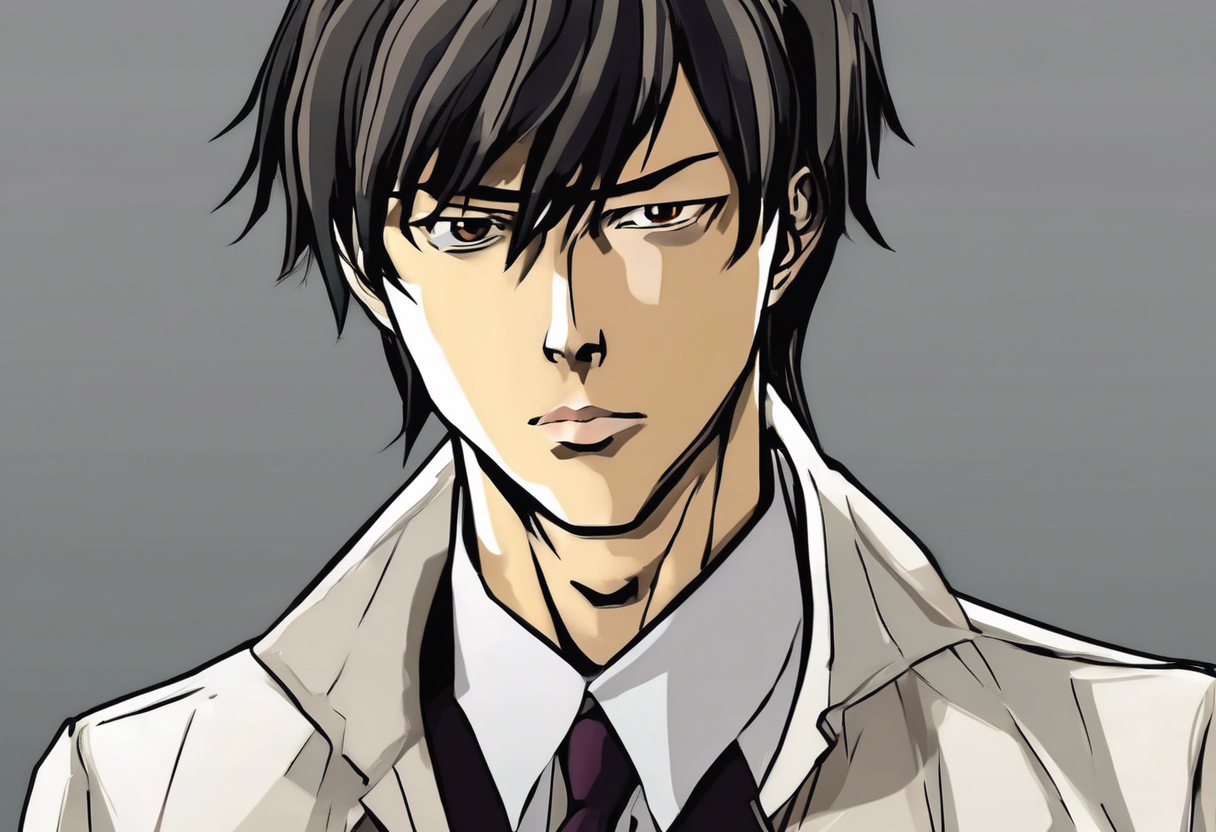Contents
Hideki Ide: A Comprehensive Analysis of the Death Note Character
Introduction
Hideki Ide is a significant supporting character in the acclaimed anime series Death Note, created by Tsugumi Ohba and Takeshi Obata. He is one of the few police officers who remain committed to the Kira investigation, led by Soichiro Yagami, Light Yagami’s father. Ide’s character is marked by his loyalty, practical approach, and eventual moral dilemmas, making him a compelling figure in the narrative.
Ide is introduced as a member of the police task force tasked with capturing Kira, the mysterious figure using the Death Note to kill criminals. His backstory is not extensively detailed, but his actions and decisions throughout the series reveal a complex and multifaceted personality. Ide’s role in the story is crucial, particularly in his interactions with other key characters and his contributions to the investigation.
Role in the Story
Hideki Ide’s storyline in Death Note is intertwined with the main plot of the Kira investigation. Initially, he is part of the task force led by L, but he leaves when he disagrees with L’s unconventional methods[3].
Despite his temporary departure, Ide returns to the investigation after L’s death, motivated by his loyalty to his colleagues, especially Aizawa. He plays a relatively minor but significant role in coordinating the team’s efforts, such as organizing a blockade of police cars to trap Higuchi, one of the suspects[3].
Ide’s relationship with Light Yagami is particularly noteworthy. He trusts Light more than any other member of the task force, except for Light’s father, Soichiro Yagami. This trust is exploited by Light as he manipulates Ide to further his own goals[3].
Throughout the series, Ide is involved in several key events and conflicts. His involvement in the investigation and his interactions with Light and other characters highlight his practical and loyal nature. However, as the series progresses, Ide begins to question the morality of Light’s actions, leading to a dramatic confrontation that underscores the ethical complexities of the story[2].
Character Analysis
Hideki Ide’s personality is a subject of interest among fans and analysts. There are differing interpretations of his personality type, with some suggesting he is an ESFJ (Extraverted, Sensing, Feeling, Judging) type, characterized by his strong desire to maintain harmony within his team and his practical approach to problems[2].
However, another perspective suggests that Ide is more likely an ISTP (Introverted, Sensing, Thinking, Perceiving) type, known for their analytical and pragmatic nature. This type aligns with his ability to take charge of situations and his assertiveness, particularly when he challenges authority figures[2].
In terms of Enneagram type, Ide is often identified as a Type 8 (The Challenger), marked by his strong will, desire for control, and fear of being controlled by others. This type is reflected in his assertiveness and leadership skills, as well as his tendency towards aggression when he perceives weakness or vulnerability in others[2].
Ide’s motivations are rooted in his sense of justice and loyalty. He is driven by a desire to see justice served and to protect his colleagues. However, his trust in Light and his eventual realization of Light’s true intentions create significant moral dilemmas for him. These conflicts make Ide a compelling and relatable character, as audiences can empathize with his struggles between loyalty and morality[2].
Themes and Symbolism
Hideki Ide embodies several themes that are central to the narrative of Death Note. One of the primary themes is the exploration of justice and morality. Ide’s character highlights the complexities of these concepts, particularly in his relationship with Light. While Light sees himself as a divine arbiter of justice, Ide’s actions and decisions reflect a more humanistic approach, emphasizing the importance of ethical considerations and the rule of law[4].
Another theme that Ide represents is the importance of teamwork and loyalty. His commitment to the task force and his colleagues underscores the value of cooperation and trust in achieving common goals. However, his blind trust in Light also serves as a cautionary tale about the dangers of unchecked loyalty and the importance of critical thinking[3].
Cultural Impact
Hideki Ide has a significant cultural impact within the Death Note fandom. Despite not being one of the main characters, he is well-regarded by fans for his loyalty and his role in the investigation. His character adds depth to the story, making the narrative more engaging and complex.
In adaptations and spin-offs, Ide’s character is consistently portrayed as a reliable and dedicated member of the task force. His interactions with other characters, particularly Light and Aizawa, are often highlighted as key moments in the series[5].
Ide’s influence on popular culture is seen in the broader discussion of justice and morality in anime and manga. His character serves as a reference point for exploring the ethical dilemmas that arise in stories involving complex moral themes.
Critical Reception
Critics and audiences have generally praised Hideki Ide for his nuanced and complex character. His role in the story is seen as crucial in highlighting the moral ambiguities of the series. The character’s development, particularly his transition from a trusting ally to a questioning critic of Light’s actions, is often cited as one of the compelling aspects of the narrative[2].
However, there are varying interpretations of his character. Some viewers see him as overly trusting and naive, while others appreciate his loyalty and eventual realization of the truth. These differing perspectives reflect the complexity of Ide’s character and the depth of the story[2].
Legacy
Hideki Ide’s enduring appeal lies in his relatable and complex character. He represents a common person caught in extraordinary circumstances, making his struggles and decisions highly relatable to audiences. His character has inspired other works and character archetypes, particularly in the realm of mystery and thriller genres.
In contemporary discussions, Ide’s character continues to be a point of reference for exploring themes of justice, morality, and loyalty. His role in Death Note serves as a reminder of the importance of ethical considerations and the dangers of blind loyalty.
References
- https://www.animecharactersdatabase.com/characters.php?id=44884
- https://boo.world/database/profile/93266/hideki-ide-personality-type
- https://myanimelist.net/character/20002/Hideki_Ide
- https://hypercritic.org/collection/death-note-manga-review-analysis-2003
- https://www.anime-planet.com/characters/hideki-ide

